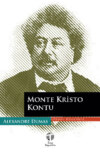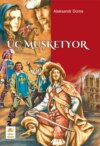Kitabı oku: «The Wolf-Leader»
INTRODUCTION
ALTHOUGH the introductory chapters were not signed until May 31st, 1856, The Wolf-Leader is to be associated in conception with the group of romances which Dumas wrote at Brussels between the years 1852 and 1854, that is to say, after his financial failure and the consequent defection of his collaborator Maquet, and before his return to Paris to found his journal Le Mousquetaire. Like Conscience l’Innocent and Catherine Blum, which date from that period of exile, the present story was inspired by reminiscences of our author’s native place – Villers-Cotterets, in the department of the Aisne.
In The Wolf-Leader Dumas, however, allows his imagination and fancy full play. Using a legend told to him nearly half a century before, conjuring up the scenes of his boyhood, and calling into requisition his wonderful gift of improvisation, he contrives in the happiest way to weave a romance in which are combined a weird tale of diablerie and continual delightful glimpses of forest life. Terror, wood-craft, and humour could not be more felicitously intermingled. The reader, while kept under the spell of the main theme of the story, experiences all the charm of an open-air life in the great forest of Villers-Cotterets – the forest in which the little town seemed to occupy a small clearing, and into which the boy Alexandre occasionally escaped for days together from the irksome routine of the school or from the hands of relatives who wanted to make a priest of him.
Thus Dumas, the most impressionable of men, all his life remained grateful to the forest for the poetic fancies derived from its beauty and the mysteries of its recesses, as well as for the hiding-places it afforded him, and for the game and birds which he soon learnt to shoot and snare there. Listen to his indignation at the destruction of the trees in the neighbouring park. We quote from his Memoirs: – “That park, planted by François I., was cut down by Louis Philippe. Beautiful trees! under whose shade once reclined François I. and Madame d’Etampes, Henri II. and Diana of Poitiers, Henri IV. and Gabrielle – you had a right to believe that a Bourbon would have respected you, that you would have lived your long life – the life of beech trees and oaks; that the birds would have warbled on your branches when green and leafy. But over and above your inestimable value of poetry and memories, you had, unhappily, a material value. You beautiful beeches with your polished silvery cases! you beautiful oaks with your sombre wrinkled bark! – you were worth a hundred thousand crowns. The King of France, who, with his six millions of private revenue, was too poor to keep you – the King of France sold you. For my part, had you been my sole fortune, I would have preserved you; for, poet as I am, there is one thing that I would set before all the gold of the earth, and that is the murmur of the wind in your leaves; the shadow that you made to flicker beneath my feet; the sweet visions, the charming phantoms which, at evening time, betwixt the day and night, in twilight’s doubtful hour would glide between your age-long trunks as glide the shadows of the ancient Abencerrages amid the thousand columns of Cordova’s royal mosque.”
The Wolf-Leader was published in 1857, in three volumes (Paris: Cadot). Dumas reprinted it in his journal Le Monte-Cristo in 1860.
R. S. G.
INTRODUCTION
WHO MOCQUET WAS, AND HOW THIS TALE BECAME KNOWN TO THE NARRATOR
I
WHY, I ask myself, during those first twenty years of my literary life, from 1827 to 1847, did I so rarely turn my eyes and thoughts towards the little town where I was born, towards the woods amid which it lies embowered, and the villages that cluster round it? How was it that during all that time the world of my youth seemed to me to have disappeared, as if hidden behind a cloud, whilst the future which lay before me shone clear and resplendent, like those magic islands which Columbus and his companions mistook for baskets of flowers floating on the sea?
Alas! simply because during the first twenty years of our life, we have Hope for our guide, and during the last twenty, Reality.
From the hour when, weary with our journey, we ungird ourselves, and dropping the traveller’s staff, sit down by the way-side, we begin to look back over the road that we have traversed; for it is the way ahead that now is dark and misty, and so we turn and gaze into the depths of the past.
Then with the wide desert awaiting us in front, we are astonished, as we look along the path which we have left behind, to catch sight of first one and then another of those delicious oases of verdure and shade, beside which we never thought of lingering for a moment, and which, indeed we had passed by almost without notice.
But, then, how quickly our feet carried us along in those days! we were in such a hurry to reach that goal of happiness, to which no road has ever yet brought any one of us.
It is at this point that we begin to see how blind and ungrateful we have been; it is now that we say to ourselves, if we could but once more come across such a green and wooded resting-place, we would stay there for the rest of our lives, would pitch our tent there, and there end our days.
But the body cannot go back and renew its existence, and so memory has to make its pious pilgrimage alone; back to the early days and fresh beginnings of life it travels, like those light vessels that are borne upward by their white sails against the current of a river. Then the body once more pursues its journey; but the body without memory is as the night without stars, as the lamp without its flame… And so body and memory go their several ways.
The body, with chance for its guide, moves towards the unknown.
Memory, that bright will-o’-the-wisp, hovers over the land-marks that are left behind; and memory, we may be sure, will not lose her way. Every oasis is revisited, every association recalled, and then with a rapid flight she returns to the body that grows ever more and more weary, and like the humming of a bee, like the song of a bird, like the murmur of a stream, tells the tale of all that she has seen.
And as the tired traveller listens, his eyes grow bright again, his mouth smiles, and a light steals over his face. For Providence in kindness, seeing that he cannot return to youth, allows youth to return to him. And ever after he loves to repeat aloud what memory tells, him in her soft, low voice.
And is our life, then, bounded by a circle like the earth? Do we, unconsciously, continue to walk towards the spot from which we started? And as we travel nearer and nearer to the grave, do we again draw closer, ever closer, to the cradle?
II
I cannot say. But what happened to myself, that much at any rate I know. At my first halt along the road of life, my first glance backwards, I began by relating the tale of Bernard and his uncle Berthelin, then the story of Ange Pitou, his fair fiancée, and of Aunt Angélique; after that I told of Conscience and Mariette; and lastly of Catherine Blum and Father Vatrin.
I am now going to tell you the story of Thibault and his wolves, and of the Lord of Vez. And how, you will ask, did I become acquainted with the events which I am now about to bring before you? I will tell you.
Have you read my Mémoires, and do you remember one, by name Mocquet, who was a friend of my father’s?
If you have read them, you will have some vague recollection of this personage. If you have not read them, you will not remember anything about him at all.
In either case, then, it is of the first importance that I should bring Mocquet clearly before your mind’s eye.
As far back as I can remember, that is when I was about three years of age, we lived, my father and mother and I, in a little Château called Les Fossés, situated on the boundary that separates the departments of Aisne and Oise, between Haramont and Longpré. The little house in question had doubtless been named Les Fossés on account of the deep and broad moat, filled with water, with which it was surrounded.
I do not mention my sister, for she was at school in Paris, and we only saw her once a year, when she was home for a month’s holiday.
The household, apart from my father, mother and myself, consisted – firstly: of a large black dog, called Truffe, who was a privileged animal and made welcome wherever he appeared, more especially as I regularly went about on his back; secondly: of a gardener, named Pierre, who kept me amply provided with frogs and snakes, two species of living creatures in which I was particularly interested; thirdly: of a negro, a valet of my father’s, named Hippolyte, a sort of black merry-andrew, whom my father, I believe, only kept that he might be well primed with anecdotes wherewith to gain the advantage in his encounters with Brunel1 and beat his wonderful stories; fourthly: of a keeper named Mocquet, for whom I had a great admiration, seeing that he had magnificent stories to tell of ghosts and were-wolves, to which I listened every evening, and which were abruptly broken off the instant the General – as my father was usually called – appeared on the scene; fifthly: of a cook, who answered to the name of Marie, but this figure I can no longer recall, it is lost to me in the misty twilight of life; I remember only the name, as given to someone of whom but a shadowy outline remains in my memory, and about whom, as far as I recollect, there was nothing of a very poetic character.
Mocquet, however, is the only person that need occupy our attention for the present. Let me try to make him known to you, both as regards his personal appearance and his character.
III
MOCQUET was a man of about forty years of age, short, thick-set, broad of shoulder, and sturdy of leg. His skin was burnt brown by the sun, his eyes were small and piercing, his hair grizzled, and his black whiskers met under his chin in a half circle.
As I look back, his figure rises before me, wearing a three-cornered hat, and clad in a green waistcoat with silver buttons, velveteen cord breeches, and high leathern gaiters, with a game-bag over his shoulder, his gun in his hand, and a cutty-pipe in his mouth.
Let us pause for a moment to consider this pipe, for this pipe grew to be, not merely an accessory, but an integral part of Mocquet. Nobody could remember ever having seen Mocquet without it. If by any chance Mocquet did not happen to have it in his mouth, he had it in his hand.
This pipe, having to accompany Mocquet into the heart of the thickest coverts, it was necessary that it should be of such a kind as to offer the least possible opportunity to any other solid body of bringing about its destruction; for the destruction of his old, well-coloured cutty would have been to Mocquet a loss that years alone could have repaired. Therefore the stem of Mocquet’s pipe was not more than half-an-inch long; moreover you might always wager that half that half inch at least was supplied by the quill of a feather.
This habit of never being without his pipe, which, by causing the almost entire disappearance of both canines, had hollowed out a sort of vice for itself on the left side of his mouth, between the fourth incisor and the first molar, had given rise to another of Mocquet’s habits; this was to speak with his teeth clenched, whereby a certain impression of obstinacy was conveyed by all he said. – This became even more marked if Mocquet chanced at any moment to take his pipe out of his mouth, for there was nothing then to prevent the jaws closing and the teeth coming together in a way which prevented the words passing through them at all except in a sort of whistle, which was hardly intelligible.
Such was Mocquet with respect to outward appearance. In the following pages I will endeavour to give some idea of his intellectual capacity and moral qualities.
IV
EARLY one morning, before my father had risen, Mocquet walked into his room, and planted himself at the foot of the bed, stiff and upright as a sign-post.
“Well, Mocquet,” said my father, “what’s the matter now? what gives me the pleasure of seeing you here at this early hour?”
“The matter is, General,” replied Mocquet with the utmost gravity, “the matter is that I am nightmared.”
Mocquet had, quite unawares to himself, enriched the language with a double verb, both active and passive.
“You are nightmared?” responded my father, raising himself on his elbow. “Dear, dear, that’s a serious matter, my poor Mocquet.”
“You are right there, General.”
And Mocquet took his pipe out of his mouth, a thing he did rarely, and only on the most important occasions.
“And how long have you been nightmared?” continued my father compassionately.
“For a whole week, General.”
“And who by, Mocquet?”
“Ah! I know very well who by,” answered Mocquet, through his teeth, which were so much the more tightly closed that his pipe was in his hand, and his hand behind his back.
“And may I also know by whom?”
“By Mother Durand, of Haramont, who, as you will have heard, is an old witch.”
“No, indeed, I assure you I had no idea of such a thing.”
“Ah! but I know it well enough; I’ve seen her riding past on her broomstick to her Witches’ Sabbath.”
“You have seen her go by on her broomstick?”
“As plainly as I see you, General; and more than that, she has an old black billy-goat at home that she worships.”
“And why should she come and nightmare you?”
“To revenge herself on me, because I came upon her once at midnight on the heath of Gondreville, when she was dancing round and round in her devil’s circle.”
“This is a most serious accusation which you bring against her, my friend; and before repeating to anyone what you have been telling me in private, I think it would be as well if you tried to collect some more proofs.”
“Proofs! What more proofs do I want! Does not every soul in the village know that in her youth she was the Mistress of Thibault, the wolf-leader?”
“Indeed! I must look carefully into this matter, Mocquet.”
“I am looking very carefully into it myself, and she shall pay for it, the old mole!”
Old mole was an expression that Mocquet had borrowed from his friend Pierre, the gardener, who, as he had no worse enemies to deal with than moles, gave the name of mole to everything and everybody that he particularly detested.
V
“I must look carefully into this matter” – these words were not said by my father by reason of any belief he had in the truth of Mocquet’s tale about his nightmare; and even the fact of the nightmare being admitted by him, he gave no credence to the idea that it was Mother Durand who had nightmared the keeper. Far from it; but my father was not ignorant of the superstitions of the people, and he knew that belief in spells was still wide-spread among the peasantry in the country districts. He had heard of terrible acts of revenge carried out by the victims on some man or woman who they thought had bewitched them, in the belief that the charm would thus be broken; and Mocquet, while he stood denouncing Mother Durand to my father, had had such an accent of menace in his voice, and had given such a grip to his gun, that my father thought it wise to appear to agree with everything he said, in order to gain his confidence and so prevent him doing anything without first consulting him.
So, thinking that he had so far gained an influence over Mocquet, my father ventured to say:
“But before you make her pay for it, my good Mocquet, you ought to be quite sure that no one can cure you of your nightmare.”
“No one can cure me, General,” replied Mocquet in a tone of conviction.
“How! No one able to cure you?”
“No one; I have tried the impossible.”
“And how did you try?”
“First of all, I drank a large bowl of hot wine before going to bed.”
“And who recommended that remedy? was it Monsieur Lécosse?” Monsieur Lécosse was the doctor in repute at Villers-Cotterets.
“Monsieur Lécosse?” exclaimed Mocquet. “No, indeed! What should he know about spells! By my faith, no! it was not Monsieur Lécosse.”
“Who was it, then?”
“It was the shepherd of Longpré.”
“But a bowl of wine, you dunderhead! Why, you must have been dead drunk.”
“The shepherd drank half of it.”
“I see; now I understand why he prescribed it. And did the bowl of wine have any effect?”
“Not any, General; she came trampling over my chest that night, just as if I had taken nothing.”
“And what did you do next? You were not obliged, I suppose, to limit your efforts to your bowl of hot wine?”
“I did what I do when I want to catch a wily beast.”
Mocquet made use of a phraseology which was all his own; no one had ever succeeded in inducing him to say a wild beast; every time my father said wild beast, Mocquet would answer, “Yes, General, I know, a wily beast.”
“You still stick to your wily beast, then?” my father said to him on one occasion.
“Yes, General, but not out of obstinacy.”
“And why then, may I ask?”
“Because, General, with all due respect to you, you are mistaken about it.”
“Mistaken? I? How?”
“Because you ought not to say a wild beast, but a wily beast.”
“And what is a wily beast, Mocquet?”
“It is an animal that only goes about at night; that is, an animal that creeps into the pigeon-houses and kills the pigeons, like the pole-cat, or into the chicken-houses, to kill the chickens, like the fox; or into the folds, to kill the sheep, like the wolf; it means an animal which is cunning and deceitful, in short, a wily beast.”
It was impossible to find anything to say after such a logical definition as this. – My father, therefore, remained silent, and Mocquet, feeling that he had gained a victory, continued to call wild beasts, wily beasts, utterly unable to understand my father’s obstinacy in continuing to call wily beasts, wild beasts.
So now you understand why, when my father asked him what else he had done, Mocquet answered, “I did what I do when I want to catch a wily beast.”
We have interrupted the conversation to give this explanation; but as there was no need of explanation between my father and Mocquet, they had gone on talking, you must understand, without any such break.
VI
“And what is it you do, Mocquet, when you want to catch this animal of yours?” asked my father.
“I set a trarp, General.” Mocquet always called a trap a trarp.
“Do you mean to tell me you have set a trap to catch Mother Durand?”
My father had of course said trap; but Mocquet did not like anyone to pronounce words differently from himself, so he went on:
“Just so, General; I have set a trarp for Mother Durand.”
“And where have you put your trarp? Outside your door?”
My father, you see, was willing to make concessions.
“Outside my door! Much good that would be! I only know she gets into my room, but I cannot even guess which way she comes.”
“Down the chimney, perhaps?”
“There is no chimney, and besides, I never see her until I feel her.”
“And you do see her, then?”
“As plainly I see you, General.”
“And what does she do?”
“Nothing agreeable, you may be sure; she tramples all over my chest: thud, thud! thump, thump!”
“Well, where have you set your trap, then?”
“The trarp, why, I put it on my own stomach.”
“And what kind of a trarp did you use?”
“Oh! a first-rate trarp!”
“What was it?”
“The one I made to catch the grey wolf with, that used to kill M. Destournelles’ sheep.”
“Not such a first-rate one, then, for the grey wolf ate up your bait, and then bolted.”
“You know why he was not caught, General.”
“No, I do not.”
“Because it was the black wolf that belonged to old Thibault, the sabot-maker.”
“It could not have been Thibault’s black wolf, for you said yourself just this moment that the wolf that used to come and kill M. Destournelles’ sheep was a grey one.”
“He is grey now, General; but thirty years ago, when Thibault the sabot-maker was alive, he was black; and, to assure you of the truth of this, look at my hair, which was black as a raven’s thirty years ago, and now is as grey as the Doctor’s.”
The Doctor was a cat, an animal of some fame, that you will find mentioned in my Mémoires and known as the Doctor on account of the magnificent fur which nature had given it for a coat.
“Yes,” replied my father, “I know your tale about Thibault, the sabot-maker; but, if the black wolf is the devil, Mocquet, as you say he is, he would not change colour.”
“Not at all, General; only it takes him a hundred years to become quite white, and the last midnight of every hundred years, he turns black as a coal again.”
“I give up the case, then, Mocquet: all I ask is, that you will not tell my son this fine tale of yours, until he is fifteen at least.”
“And why, General?”
“Because it is no use stuffing his mind with nonsense of that kind, until he is old enough to laugh at wolves, whether they are white, grey or black.”
“It shall be as you say, General; he shall hear nothing of this matter.”
“Go on, then.”
“Where had we got to, General?”
“We had got to your trarp, which you had put on your stomach, and you were saying that it was a first-rate trarp.”
“By my faith, General, that was a first-rate trarp!” It weighed a good ten pounds. What am I saying! fifteen pounds at least with its chain!
I put the chain over my wrist.
“And what happened that night?”
“That night? why, it was worse than ever! Generally, it was in her leather overshoes she came and kneaded my chest, but that night she came in her wooden sabots.”
“And she comes like this…?”
“Every blessed one of God’s nights, and it is making me quite thin; you can see for yourself, General, I am growing as thin as a lath. However, this morning I made up my mind.”
“And what did you decide upon, Mocquet?”
“Well, then, I made up my mind I would let fly at her with my gun.”
“That was a wise decision to come to. And when do you think of carrying it out?”
“This evening, or to-morrow at latest, General.”
“Confound it! And just as I was wanting to send you over to Villers-Hellon.”
“That won’t matter, General. Was it something that you wanted done at once?”
“Yes, at once.”
“Very well, then, I can go over to Villers-Hellon, – it’s not above a few miles, if I go through the wood – and get back here this evening; the journey both ways is only twenty-four miles, and we have covered a few more than that before now out shooting, General.”
“That’s settled, then; I will write a letter for you to give to M. Collard, and then you can start.”
“I will start, General, without a moment’s delay.”
My father rose, and wrote to M. Collard; the letter was as follows:
“My dear Collard,
“I am sending you that idiot of a keeper of mine, whom you know; he has taken into his head that an old woman nightmares him every night, and, to rid himself of this vampire, he intends nothing more nor less than to kill her.
“Justice, however, might not look favourably on this method of his for curing himself of indigestion, and so I am going to start him off to you on a pretext of some kind or other. Will you, also, on some pretext or other, send him on, as soon as he gets to you, to Danré, at Vouty, who will send him on to Dulauloy, who, with or without pretext, may then, as far as I care, send him on to the devil?
“In short, he must be kept going for a fortnight at least. By that time we shall have moved out of here and shall be at Antilly, and as he will then no longer be in the district of Haramont, and as his nightmare will probably have left him on the way, Mother Durand will be able to sleep in peace, which I should certainly not advise her to do if Mocquet were remaining anywhere in her neighbourhood.
“He is bringing you six brace of snipe and a hare, which we shot while out yesterday on the marshes of Vallue.
“A thousand-and-one of my tenderest remembrances to the fair Herminie, and as many kisses to the dear little Caroline.
“Your friend,“Alex. Dumas.”
An hour later Mocquet was on his way, and, at the end of three weeks, he rejoined us at Antilly.
“Well,” asked my father, seeing him reappear in robust health, “well, and how about Mother Durand?”
“Well, General,” replied Mocquet cheerfully, “I’ve got rid of the old mole; it seems she has no power except in her own district.”




















